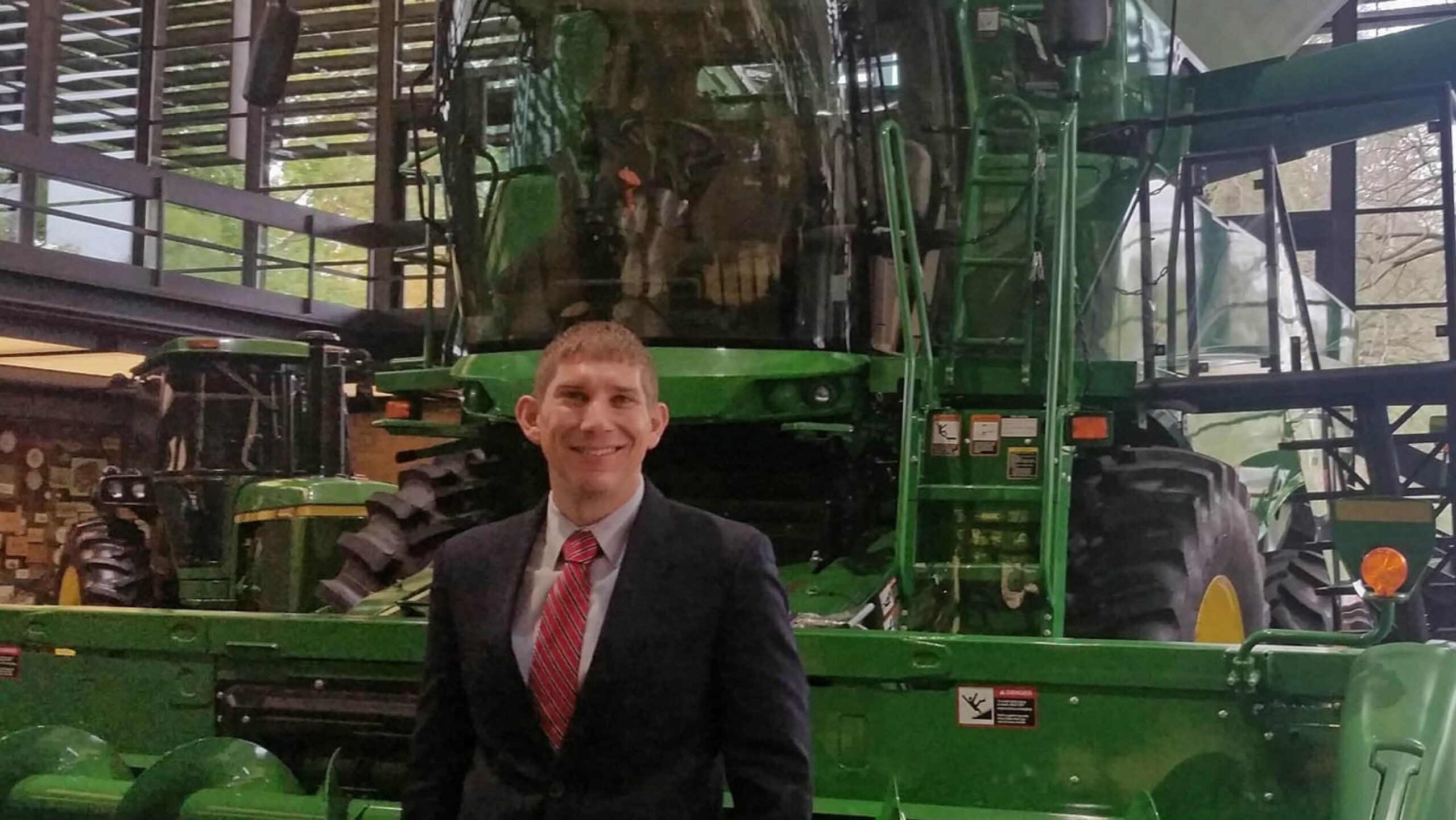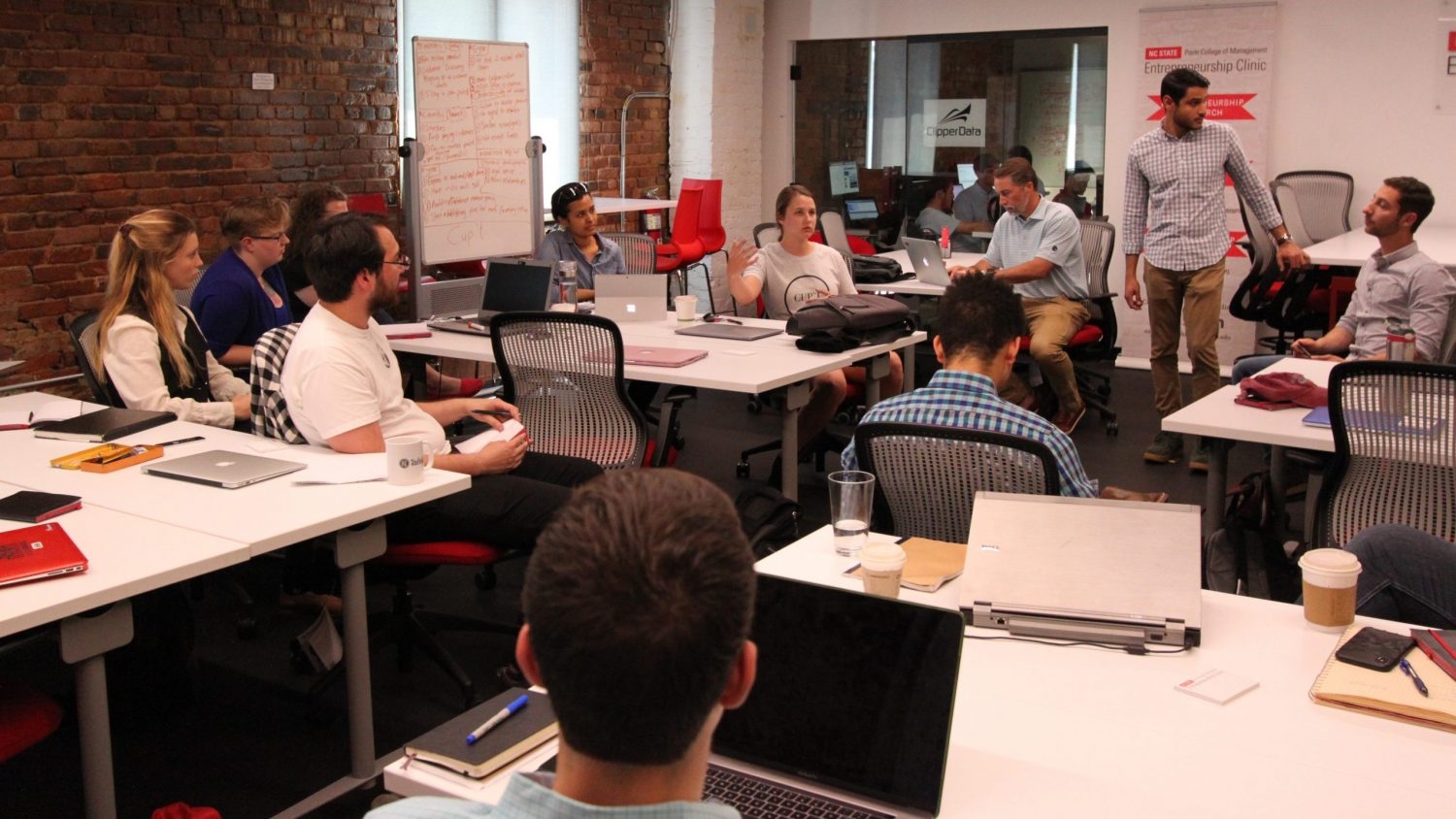Leading the Pack: Corey Young

Corey Young is a 2020 Jenkins MBA alumnus. As a Customer Support Representative at John Deere and a military veteran, Young says that NC State made navigating the VA and GI Bill requirements very easy and straightforward and the Jenkins MBA really forced him to combine raw knowledge, business acumen and interpersonal skills to be successful.
In the following Q & A, Young goes into more detail about why he chose NC State, advice for prospective students, and how the time in the program is helping him succeed in his current role.

Q: Why did you choose the NC State Jenkins MBA program for your graduate education?
A: NC State was a natural choice. I had lived just south of Raleigh for over four years prior to enrolling at NC State. Consequently, I had heard much about NC State as well as the other schools in the area. However, after learning about NC State’s commitment to Veterans and talking with the Military and Veterans Services team I knew that NC State would be the right choice. They didn’t disappoint and I’m very happy with my choice. They made navigating the VA and GI Bill requirements very easy and straightforward. This was a true blessing that allowed me to focus 100% on school work without worrying about administrative paperwork.
Q: How did your experience in the program contribute to your professional achievements and successes?
A: I can’t say that there is one single experience, skillset, or knowledgebase that I acquired though my MBA studies that contributed single handled to my current professional success. Rather, it’s more of a cumulative effect of the sum total of knowledge gained and acquired throughout the program.
A Jenkins MBA really forces you to combine raw knowledge, business acumen and interpersonal skills to be successful. Somedays you need a little more of one than the other, but all are required to build and manage a team to achieve a common goal. Furthermore, business is always changing, adapting and evolving to the demands of the marketplace. You need to be able to do the same as the job market evolves and changes along with it and the Jenkins Career Services team really does give you the tools required to meet those challenges and be successful.
Q: What advice would you give for prospective and current students who are interested in your industry/profession?
A: I think the biggest piece of advice I could offer is not to limit yourself due to fear of failure. Opportunities to challenge yourself, to grow and learn from those experiences come in unexpected ways sometimes. I never had a strong math or statistics background before, but I took several data analytics courses and was truly out of my element. However, after a bit of hard work and tons of trial and error I was able to learn a new skillset that is very valued in today’s job market. Don’t be afraid to put yourself out there. Everyone there, the professors, staff, the other students, wants to see you do well and in most cases are willing to go above and beyond to help you succeed. You just have to be willing to put in the effort.
Q: Is there anything you would have done differently looking back at your experience?
A: Truthfully, I think that I initially underestimated just how much time and effort the program would require. I began the program about 2 weeks after leaving my previous full-time job. I wish that I would have given myself a longer break between leaving that job and starting the program to help me “reset” mentally and prepare for the challenges ahead.
Q: Could you give a brief explanation of your current line of work and how COVID-19 has impacted it? As well as how the MBA has helped prepare you navigate during these times?
A: My current position with John Deere is as a Customer Support Representative in their Marketing and Customer Support Development Program. This program is designed to give new graduates/employees broad exposure to several different areas of the business by spearheading key projects in various departments. COVID has had a huge impact on my daily work routine. In person meetings and business travel have been limited to essential personnel only. I currently work from home so the vast majority of my interaction with my bosses and coworkers has been virtual. As you can imagine this presents a unique challenge that is much different than the group work that many students experience throughout their studies.
Fortunately for me, my first practicum with the Red Cross was conducted primarily virtually given the distances involved. That experienced really helped me build and refine the skillset required to manage a dispersed team remotely. In a virtual environment, management tools like clear agendas, well defined key roles and responsibilities, updated task lists, etc., are vital to keep everyone on task, working efficiently, to ensure the project keeps progressing forward. Even seemingly small things like setting aside 5 to 10 minutes at the beginning or end of a meeting become vital to building a sense of community and promoting teamwork when working remotely. While my previous career helped to prepare me for the challenges I’m currently facing, it was my experiences thought that practicum and other projects at NC State that really helped me refine those skills and translate them over to my new profession.
- Categories:


